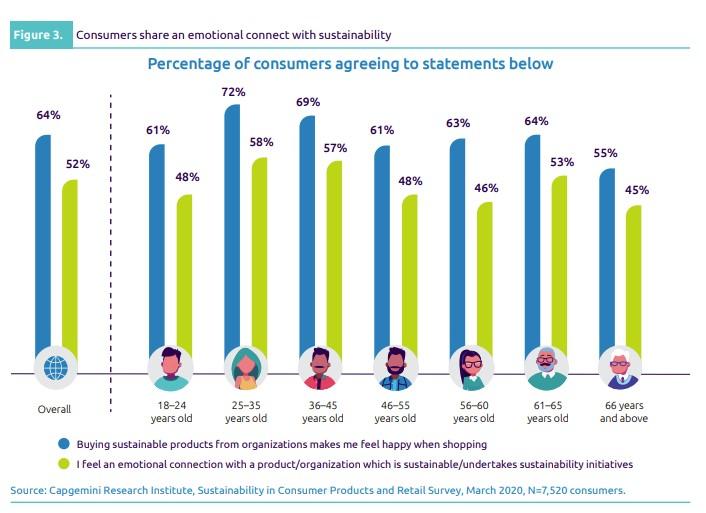
Quick stats: Influencers hold the most power in impacting sustainable living practices
share on
Influencers are said to have the single biggest impact on people’s choices on sustainable living, and as such brands can maximise the power of social media influencers, and potentially switch people onto sustainable living.
The finding was uncovered by Unilever that stated that three in four people are more likely to take up behaviours to help save the planet after watching social media content about sustainability. The results showed that social media is considered to be more influential than TV documentaries (48%), news articles (37%) and even government campaigns (20%).
Created in partnership with the Behavioural Insights Team (BIT), the study provides expertise on behavioural science. The study interviewed 6,000 participants in the UK, US, and Canada, who were shown the content and asked a series of questions to understand whether it had affected their intentions to change their behaviour.
According to the report, nearly 83% consider of responders consider platforms such as TikTok and Instagram as fit for the provision of advice on how to live sustainably. Since branded content is largely found on these social media platforms, the study reported that it was viewed just as engaging, authentic and informative as unbranded content. Around 77% were supportive of social media creators making sponsored sustainable content with 72% being supportive of them selling products focused on sustainability.
Don't miss: Study: 4 reasons why CMOs don't know where to start with sustainability
Pragmatic messaging versus Optimistic messaging
With the aim to encourage people to use less plastic and waste less food, the study showed that people are drawn towards both pragmatic and optimistic messaging. Around 75% of responders said that content made them more likely to adopt sustainable behaviours and when measuring actual behavioural changes.
The study showed that practical advice based on facts was influential as well, and 69% of respondents said that they went on to try something new to reduce their plastic and food waste and as a result. Around 61% of those who watch optimistic content reported action.
Unilever’s chief digital and commercial officer, Conny Braams, said that people are finding it hard to make sustainable choices due to the lack of simple, immediate and trustworthy information. “Our ambition is to continue to collaborate with our partners to improve the sustainability content produced by our brands and support the creators we work with,” she added.
The chief executive of the behavioural insights team, David Halpers said that the behavioural change potential of social media is clear and the results show that it is a huge opportunity.
Consumer stance on sustainability
According to a 2020 report by Capgemini, nearly 80% of consumers want to be able to make a difference in saving the planet for future generations, and 77% are concerned about the humane and fair treatment of workers. Globally, 72% are personally concerned about their environmental footprint, and 66% choose to purchase products or services based on their “environmental friendliness.”
The report also highlighted that more than half (52%) of consumers say that they share an emotional connection with products or organisations that they perceive as sustainable.


Around 64% say that buying sustainable products makes them feel happy about their purchase (and this reaches 72% among 25–35 year olds. Sustainability thus makes a difference by touching upon the positive emotional aspects of consumers.
The emotional connection with sustainability is also reflected in purchase preferences. Overall, 79% of consumers are changing purchase preference based on the social responsibility, inclusiveness or environmental impact of their purchases.
Of those who have changed preferences, the primary motivations are:
- Wanting to make a difference in saving the planet for future generations (80%)
- Concerns about fair workforce treatment (77%)
- Concerns about issues like poverty and hunger (76%).
Content 360 is back on 10-11 May 2023 in Singapore. A hugely popular event over the years, Content 360 brings the most influential content creators to inspire you. Across two days, you can connect with 300+ brightest minds in the industry and learn how to overcome challenges to make your content stand out among the crowd. Tickets are on sale now, register today: https://conferences.marketing-interactive.com/content360-sg/
Related articles:
Unilever continues to double down on marketing spend in 2023
Unilever Malaysia's Javed Jafri heads to Pakistan in new role
Unilever names new chair of ED&I board of Indonesia
share on
Free newsletter
Get the daily lowdown on Asia's top marketing stories.
We break down the big and messy topics of the day so you're updated on the most important developments in Asia's marketing development – for free.
subscribe now open in new window
